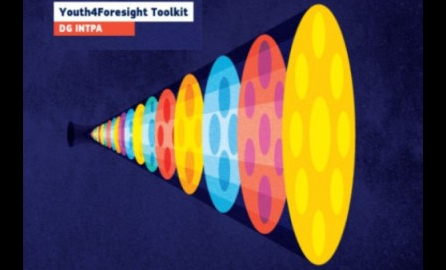Cambodian Youth: Using futures thinking to anticipate change and lead boldly
As the future grows more complex and uncertain, young people in Cambodia are learning to navigate it with curiosity, creativity, and clarity.
In September 2024, the European Union Delegation (EUD) to Cambodia hosted a 2.5-hour online foresight workshop with its Youth Sounding Board (YSB). The session introduced strategic foresight tools to help youth anticipate change, collaborate on ideas, and shape sustainable futures. Using Miro, participants explored trends related to climate action, public service transformation, and governance.
Why futures thinking matters
Cambodian youth are facing a web of intersecting challenges - from climate risks and water scarcity to inequities in education, healthcare, and digital access. Futures thinking offers them a way to not only react but lead proactively. The ability to think strategically about long-term possibilities, and act accordingly, is becoming a critical skill.
What happened in the workshop
📅 Date: 13 September 2024
🌐 Location: Online
👥 Participants: 9 total (7 YSB members + 2 EUD staff)
🧠 Tools Used: Futures Wheel, Three Horizons, trend prioritization
Prior to the session, youth had participated in an introductory workshop to familiarize themselves with key foresight concepts. From that, five trends emerged as most relevant to Cambodia: shifting geopolitical power, green and digital transitions, resource scarcity, new governance systems, and "Basic Services 3.0" (health, education, justice).
During the main session, participants selected resource scarcity and basic services as the two core trends to explore through the Futures Wheel. They mapped immediate and secondary impacts—such as income inequality, food insecurity, and weak infrastructure—then identified strategies like improved public-private partnerships, climate legislation, and innovation in resource use to build long-term resilience.
Next, youth moved into a Three Horizons exercise, which helped them reflect on current realities, envision desirable futures, and chart a pathway of innovation and action between the two.
- Horizon 1 highlighted structural challenges: limited access to clean water, energy, and internet; weak healthcare; unskilled labor; and poor transport. These reinforced the sense that "business as usual" is no longer sustainable.
- Horizon 2 focused on transitional innovations already emerging. Youth emphasized the importance of public-private collaboration, digital literacy, green skills, and inclusive transport. Highly supported ideas included promoting green tourism, separate city bus lanes, and youth networks.
- Horizon 3 captured bold visions for a more inclusive Cambodia—with universal access to clean water and air, waste-free cities, thriving green public spaces, and stronger digital governance.
Participants also identified “Seeds of the Future”—existing initiatives like food banks, grassroots movements, and water treatment projects—that reflect Horizon 3 values but need scaling up.
What was learned & challenges & opportunities
Participants reported a mindset shift:
🗣️ “Before this, I didn’t give much thought to the future. Now, I find it essential for both my career and our community.”
🗣️ “Foresight helps me understand, predict, and align my work with long-term goals.”
🗣️ “The Three Horizons model was simple but powerful.”
While the session was well received, some challenges were noted:
- The online format limited peer-to-peer engagement.
- Some participants were hesitant to speak up; deeper facilitation could help.
- The single-session format was dense, splitting it into two shorter sessions may enhance reflection.
Still, the session sparked high engagement and showed foresight’s value in building youth leadership and agency.
Looking Ahead
This Cambodia workshop is part of the broader Youth4Foresight initiative supported by INTPA. It signals growing momentum for inclusive, future-focused engagement in EU partner countries. Cambodian youth aren’t just imagining the future - they’re preparing to lead it.
